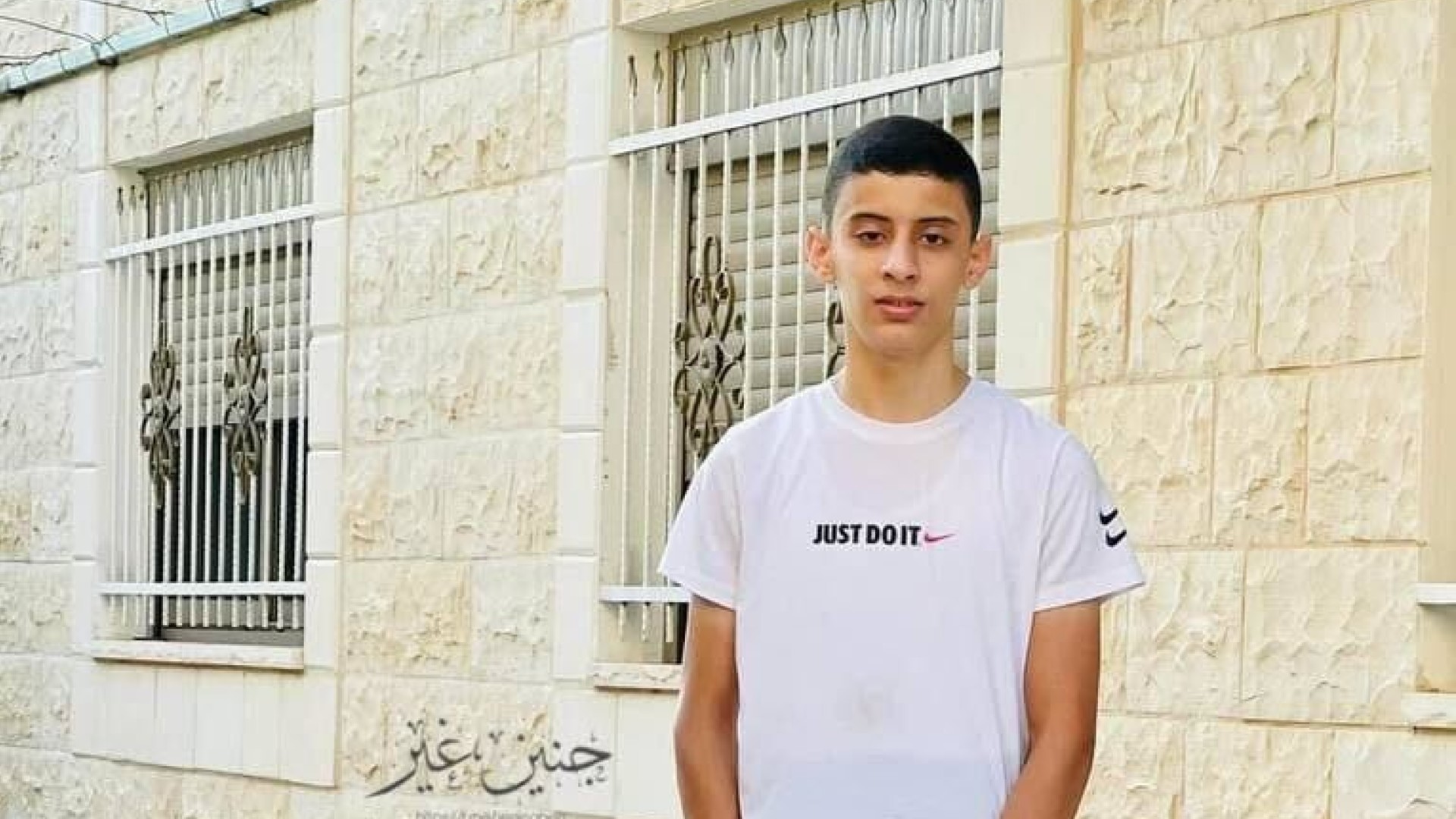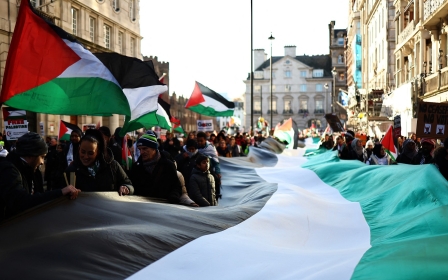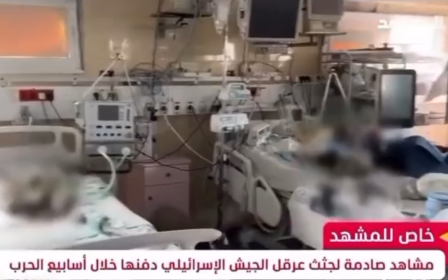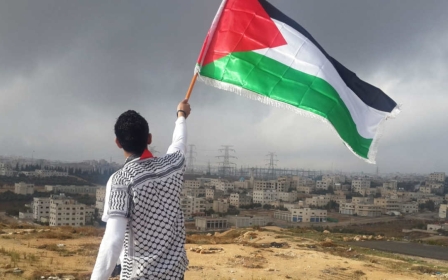Israel-Palestine war: Israeli forces kill two Palestinian children in Jenin refugee camp
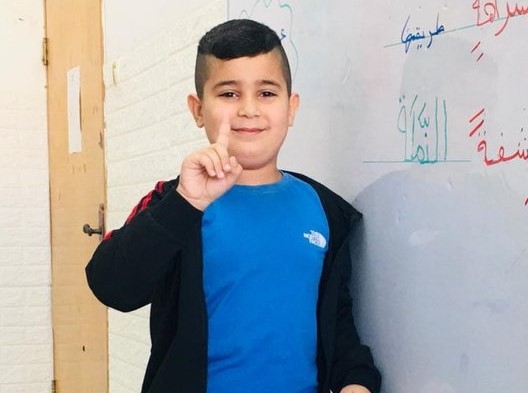
Two Palestinian children, including a nine-year-old boy, have been shot dead by Israeli forces in the Jenin refugee camp, according to local media.
The Palestinian Ministry of Health said Adam al-Ghoul, nine, and Basil Suleiman Abu al-Wafa, 15, were killed by soldiers in the camp, in the north of the occupied West Bank.
On Tuesday evening Israeli forces launched an all-out assault on the camp, which is a major source of resistance and has been invaded repeatedly over the past year, especially since Hamas's 7 October attack on southern Israel.
Locals told the Wafa news agency that Israeli troops forced residents of Damj neighbourhood to leave their homes at gunpoint, after "massive destruction" by Israeli weaponry.
CCTV footage of Ghoul's killing was greeted with outrage on social media.
Ghoul can be seen running before falling down dead, apparently from a gunshot wound. Another boy is then seen dragging him off the street, with blood pooling beneath Ghoul.
"Unarmed and running away," wrote the Palestinian ambassador to the UK, Husam Zumlot, writing on X, formerly Twitter.
"But Israeli soldiers still killed this child in #Jenin today in the same indiscriminate manner that they have been killing thousands of children in Gaza."
West Bank raids
At least 227 Palestinians have been killed by Israeli soldiers and settlers in the West Bank in 50 days. Over 3,000 have been detained.
The early hours of Wednesday morning also saw Israeli forces launch a string of raids across several other refugee camps in the West Bank.
In Jericho, Israeli troops stormed homes in Ein el-Sultan and Aqbat Jabr refugee camps, accompanied by a military bulldozer in the latter.
Meanwhile, in Nablus, Israeli forces raided Askar camp, where violent confrontations broke out with residents.
In Ramallah, Palestinian homes were stormed in the Jalazone camp, after which young men from the camp confronted Israeli forces.
Settler violence has continued throughout the war and the ceasefire. France took notice on Wednesday saying that the European Union should consider sanctions on Israeli settlers who have targeted Palestinians in the West Bank as an option and that talks at the EU to impose sanctions on Hamas commanders were progressing.
"We believe that the international community has a role to play to end these acts of violence which are extremely destabilising for the region, but also harm the prospects for a two state-solution," Foreign Ministry spokesperson Anne-Claire Legendre told a weekly news briefing.
Hostage deaths overshadow truce
Truce extension negotiations on Wednesday were overshadowed by news from Hamas that an Israeli bombing had killed a hostage family in Gaza, including a 10-month-old baby.
Al-Qassam Brigades, the military wing of Hamas, said that the youngest hostage, baby Kfir Bibas, was killed along with his four-year-old brother Ariel and their mother.
Their announcement came shortly before the final release of women and child hostages scheduled under the truce.
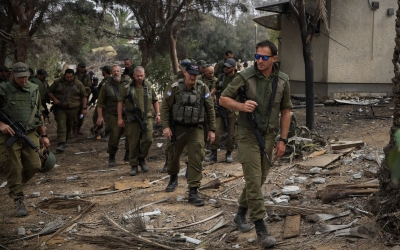
The Israeli military said in a statement that it was "assessing the accuracy of the information" but added that it held Hamas responsible for the safety of all the hostages being held in Gaza.
Meanwhile, Euro-Med Monitor said on Wednesday that an independent international investigation committee must be established to look into the deaths of five newborn Palestinian children.
The statement was issued following the news that five premature Palestinian babies were discovered dead when the temporary truce was announced.
On Wednesday evening 10 Israeli hostages held in Gaza were handed over to the International Committee of the Red Cross.
The Qatari spokesperson for the Ministry of Foreign Affairs said the captives released included five minors and five women. He also added that Palestinians, 16 minors and 14 women, were expected to be freed but their release was still being awaited late Wednesday night with Haaretz reporting the delay was due to 'technical problems'.
According to Israeli officials, 240 Israelis were captured by Hamas and Palestinian groups on 7 October during their multi-pronged attack on southern Israel.
Most of the Israelis were taken prisoner by Hamas but some are believed to be held by the Palestinian Islamic Jihad, a smaller faction, and others.
Meanwhile, 160 Palestinian civilians have been found dead amid the rubble in Gaza in the last 24 hours as both sides continue to observe the ceasefire.
More than 15,000 Palestinians have been killed since 7 October.
The United Nations' secretary general said on Wednesday that inhabitants of the Gaza Strip are experiencing "a monumental humanitarian catastrophe”.
Antonio Guterres called for a “real ceasefire” and said that the world “must not look away".
“The volume of aid reaching the Palestinians in Gaza is still completely insufficient to meet the needs of more than two million people”, particularly for fuel, insisted the secretary general, who once again called for the opening of other points of passage into the Gaza Strip, including Rafah.
And finally, Jordan is set to host an international conference attended by the main UN bodies and regional and international relief agencies to coordinate humanitarian aid to war-devastated Gaza, official media said.
The conference is planned for 30 November, with UN aid chief Martin Griffiths and key UN bodies and NGOs set to be attending the conference, along with representatives of western and Arab countries.
Middle East Eye propose une couverture et une analyse indépendantes et incomparables du Moyen-Orient, de l’Afrique du Nord et d’autres régions du monde. Pour en savoir plus sur la reprise de ce contenu et les frais qui s’appliquent, veuillez remplir ce formulaire [en anglais]. Pour en savoir plus sur MEE, cliquez ici [en anglais].


